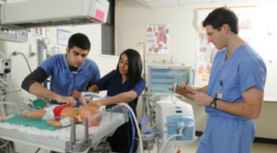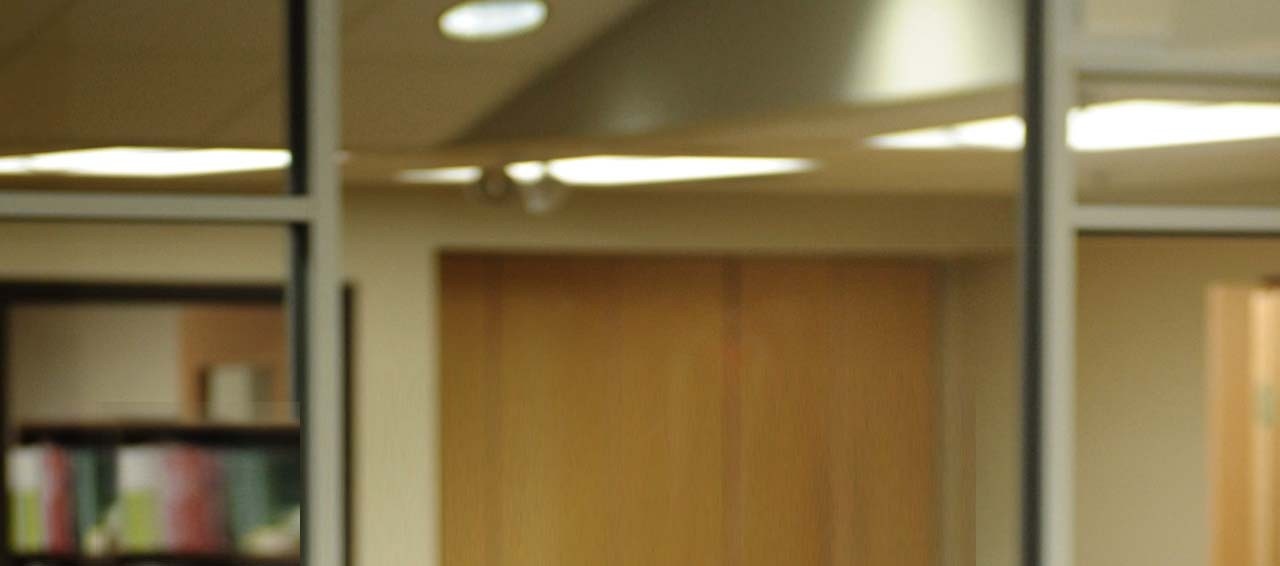Respiratory Therapy
Who are Respiratory Therapists?
Respiratory therapists (RTs) are highly skilled he alth care professionals who help people with their breathing. RTs care for patients by evaluating, treating and maintaining heart and lung function. They treat all age groups, from newborns to the elderly.
alth care professionals who help people with their breathing. RTs care for patients by evaluating, treating and maintaining heart and lung function. They treat all age groups, from newborns to the elderly.
Where do Respiratory Therapists work?
Respiratory therapists work in a variety of hospital and/or community settings:   
- Intensive care units
- Emergency departments
- Operating rooms
- Neonatal nurseries
- Outpatient clinics
- Sleep labs
- Home care
- Smoking cessation programs
- Medical equipment sales
- Education and research
How do I become a Respiratory Therapist?
The School of Health Sciences offers a four year Bachelor of Health Science (BHSc) degree program, which includes theory and practice. Students will take core professional development courses with a  concentration on respiratory therapy specific skills. A diploma option is possible after completion of Year 3.   The program curriculum offers the necessary competencies to challenge the national certification examination administered by the Canadian Board for Respiratory Care (CBRC).
Entrance Requirements
To be considered for admission High School applicants require grade 12 academic English, Math, Chemistry and one of Biology or Physics with no mark below 70% in each of these courses and an overall minimum average of 75%. Post secondary applicants require a minimum GPA of 2.75 (on a 4.30 scale), with no grade lower than C in prerequisite courses. Priority
consideration is given to permanent residents of the Maritime provinces, then to residents across Canada and then to all other applicants. Admission can be competitive and meeting the minimum entrance requirements does not guarantee admission.
Examples of Courses in the Program
- Anatomy & Physiology
- Cardiopulmonary Physiology
- Respiratory Disease and Therapeutics
- Human Pregnancy and Fetal/Newborn Development 
- Mechanical Ventilation 
- Foundations of Health Care Practice
- Health Care Ethics
- Statistics
- Research Methods
Program Outline
| View the course descriptions for Respiratory Therapy ┬╗ |
|---|
Clinical practicums
One of the benefits of studying in the School of Health Sciences is the opportunity to do hands-on clinical work. After years 1, 2, and 3, every student spends 8 weeks during May and June working full time in a health-care centre. Some choose to stay in Halifax to complete the practicums, while others travel to locations elsewhere in the Maritimes and, in some cases, across the country.
Accreditation
Accreditation Canada the program's accrediting body. For more information go to  to view the list of accredited Respiratory Therapy programs.
Professional Associations
The Canadian Society of Respiratory Therapists (CSRT) is the national professional association for respiratory therapists. RTs employed in Nova Scotia are licensed by the Nova Scotia College of Respiratory Therapists.
Job Opportunities
Respiratory therapy is an evolving profession with excellent employment opportunities across Canada. Working hours and salaries vary from province to province.
For more information on Respiratory Therapy please visit the or the .
